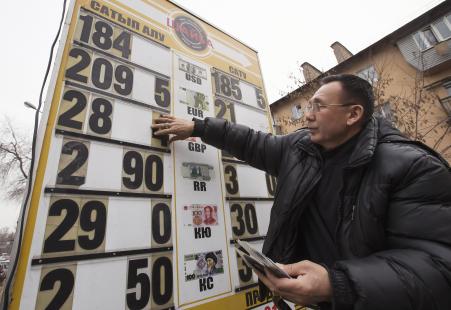By Aditya Tejas -

Kazakhstan’s currency, the tenge, plunged in value on Thursday against the U.S. dollar, seeing an unprecedented dip of 23 percent after the currency was allowed to float freely.
The country eased controls on its exchange rate, joining a growing number of developing markets that are abandoning efforts to prop up their currencies ahead of the U.S. raising its interest rates.
Prime Minister Karim Massimov announced at a government meeting in the capital Astana that the country has switched to a free-floating currency and will now seek to contain inflation with its monetary policy. The shift “will create the necessary conditions for a recovery of economic growth, increased lending and investment activity, creation of new jobs and a decrease in the inflation rate to between 3 percent and 4 percent in the medium term,” he said, according to Bloomberg.
The move by Astana comes shortly after China devalued the yuan, prompting a rout in regional Asian markets. On Wednesday, Vietnam devalued the dong for the third time this year. Russia’s ruble has also lost over half its value since last year.
Kazakhstan is Central Asia’s biggest exporter of crude oil, and its economy has been hit hard by sliding oil prices around the world. The country’s biggest trading partners, China and Russia, have also seen their economies slow down.
Central bank Governor Kairat Kelimbetov reportedly said that the currency was expected to stabilize after five to seven days, and added that the central bank is not targeting a specific inflation rate, but is trying to reach a stable rate governed by supply and demand.
President Nursultan Nazarbayev said Wednesday that the country would have to adapt to the economic changes brought about by low oil prices. "The head of state stressed that due to the new economic reality it is needed to adapt to oil prices at $30-40 per barrel," the presidential press service said, as cited by Reuters.
Kazakhstan is stepping up its economic cooperation with both China and Russia. In March, the country finalized $24 billion in economic deals with China -- Kazakhstan is a central part of Beijing’s plan for a “new silk road” that would create an economic corridor spanning Central Asia.
Russia has also been wooing the oil exporter. Russian President Vladimir Putin in March proposed a currency union between Russia, Kazakhstan and Belarus.
